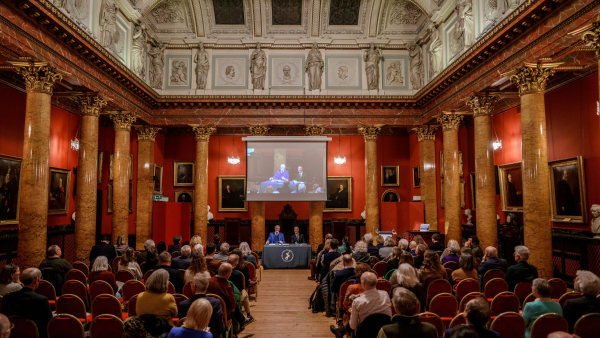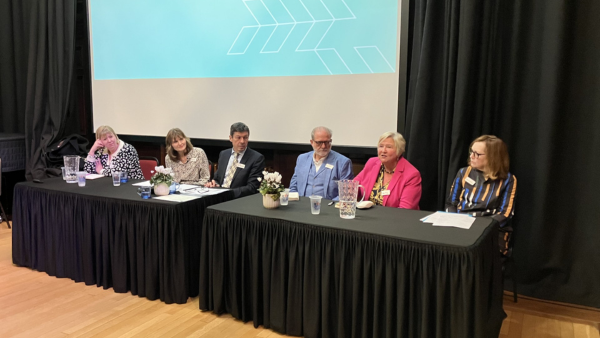Cecily Liu FRSA shares her experiences of volunteering for a project in China that aims to improve the life chances of children living in rural areas and shape the future of education.
When I first saw the 13-year-old girl Wenjie dance, I could almost foresee her developing a legendary career performing on stage. Her movement was so swift and expressive and her shone with happiness and hope. She seemed to be lost in her own world away from the worries of living in rural China where living condition is basic, education quality is minimum, and her parents are too busy working to make the ends meet that quality family time is a luxury.
To encourage Wenjie to build confidence and connect with her dancing talents, I encouraged her to lead group dancing sessions for the hundreds of students at her school, so that she could build confidence as a star. Wenjie was very shy at first, but eventually agreed to do so on one condition: “Teacher, I would only go on stage if you come with me as my dance partner,” she said, looking at me with hopeful eyes. This was the dilemma I encountered when I taught a class of rural children at a Visionary Education summer camp.
Growing up, I’ve always felt a little like an ugly duckling, always falling behind the beat in primary school dance classes, and eventually the dance teacher asked my mother to take me home so that I do not disturb the other children. The experience has left vivid memories and I’ve never tried dancing since.
But facing Wenjie’s request, I could not resist. To support her, I spent the next few lunchtimes diligently learning the dance moves from her, so that I would not embarrass myself too much when I lead the group dancing sessions as Wenjie’s dance partner. Day by day, I started to improve, and even enjoy the dance. After a few days, I went on stage with Wenjie, leading the 300 children every day to rehearse our group dance.
This was just one moving moment of my journey as a volunteer. At Visionary Education, perhaps the most shared sentiment amongst volunteers is that although we serve our shared purpose selflessly, we are gaining so much more than we give. And the way Wenjie has encouraged me to leave behind my ‘ugly duckling’ self perception is totally testament of this sentiment.
Having such fulfilling first hand experience interacting with Wenjie and other incredibly bright children, I can completely understand why Visionary Education has managed to attract the contribution of more than 250 volunteers over its 13-year history. Launched in 2008 after an earthquake in Sichuan Province killed many young school children, Visionary Education has since grown to shape rural education across the whole of China – we have provided leadership training for over 200 rural principals and hosted many summer camps for rural children – the two activities combine to impact the lives of tens of thousands of rural children.
Despite the charity’s growth, we have remained an all-volunteer run project. As an all-volunteer run project, the obvious challenge is the lack of stability and certainty, as our volunteers all have full time work or study. They are absolutely investing 120% of effort and commitment to ensure that they deliver top quality work supporting rural principals and children. What drew us together is the shared sense of responsibility, and fulfilment of seeing children like Wenjie thrive when they are connected with their talents. And of course, another critical factor that has sustained Visionary Education’s consistent development over the years is the tremendous support we have received from our supervisor, the China Association for NGO Cooperation (CANGO). CANGO has given us significant strategic as well as operational support, and worked alongside us volunteers to shape the shared goal of transforming rural education in China.
In 2021, to celebrate our team of volunteers’ shared journey, we published a new book, A Spark in the Kindle: A Volunteer Team's Journey to Illuminating Rural Education. The book is a collection of stories from many volunteers over the years: Guohui Sun shared his observation of Visionary Education’s growth and impact on rural education for over a decade; Xiaobo Peng wrote about how a little girl she taught in 2010 has since grown up and found her own life path; Ella Monck wrote about how teaching rural children has shaped her first ever experience visiting China; Laragh wrote about her experiences organising an ‘Olympics’ sporting event for rural children in 2012 when the real Olympics were happening in London, her hometown.
These are just a few stories that give a flavour of the shared memories that have not only shaped Visionary Education’s history, but created ripple effect for revolutionising China’s rural education landscape. The key lessons here include:
- The greatest power of the volunteering spirit is a recognition that we are all contributing towards a worthy cause that is larger than our own lives, with impact far beyond our generation.
- A shared vision and values unite volunteers and empower us to keep on going in the face of challenges.
- In serving others, not only do we find fulfilment but we also reach up to our individual potential.
- Volunteers are the greatest ambassadors of a non-profit organisation; their passion and experiences can influence and attract more and more like-minded contributors.
- In the volunteering world, there is no difference between a significant task and a menial task; all tasks are equally important and all contributions are greatly appreciated by all members of the team.
2021 is the fourth year I’ve been volunteering for Visionary Education, the incredible spirit of our growing team of young volunteers gives me so much energy, and constantly encourages me to go out of my own comfort zone to deliver more. Collectively our aim is to shape the future of rural education and ensure a better future for many more children.
Cecily Liu, is a former journalist. Outside of work, she spends most of her free time volunteering for Visionary Education, a project striving to improve China’s rural education quality.

Become an RSA Fellow
The RSA Fellowship is a unique global network of changemakers enabling people, places and the planet to flourish. We invite you to be part of this change.
Related articles
-
The 2024 Angus Millar Lecture
Fellowship news
Fionna Monk
The 2024 Angus Millar Lecture was led by award-winning novelist Andrew O’Hagan on the theme of 'Art, Literature and Truth in the Era of Fake News, Algorithms and Artificial Intelligence'.
-
Facing the future: Scotland's challenges
Fellowship news
Fionna Monk
On 26 November 2024, RSA Scotland discussed Scotland’s future with nine engaging speakers addressing various challenges facing the country. The venue was resonant – a former committee room at the French Institute used in its early days by the Scottish Parliament. This successful event was chaired with deftness and humour by the former Presiding Officer at the Parliament, Rt Hon Ken Macintosh.
-
Improving health through economic development
Report
Anna Markland Liv Chai Nicholas Heslop
The RSA have created an Economies for Healthier Lives Programme Coaching Resource that pulls together our experience, insight and case studies from the five ‘Hubs’. This resource is designed to support those looking to learn from and replicate this work to get supported at every stage, from project inception through to legacy planning.




Join the discussion
Comments
Please login to post a comment or reply
Don't have an account? Click here to register.
Rural students sometimes experience distractions during home-based learning. As the mode of online teaching in rural China tends to be asynchronous, in which materials are distributed out to the students to work on at their own time, students do not get to interact online with their teachers and therefore, could experience helplessness, loneliness and isolation from their classmates. Many rural students are more easily distracted due to the superposition of various interference factors and lack of parental supervision. This is especially difficult for rural children whose parents leave to urban cities as migrant workers. Thus, the efficiency of class is much lower among rural students than among urban students. Additionally, since assessment was done at home, rural teachers had no way to ascertain if there was cheating. Essayservices.org